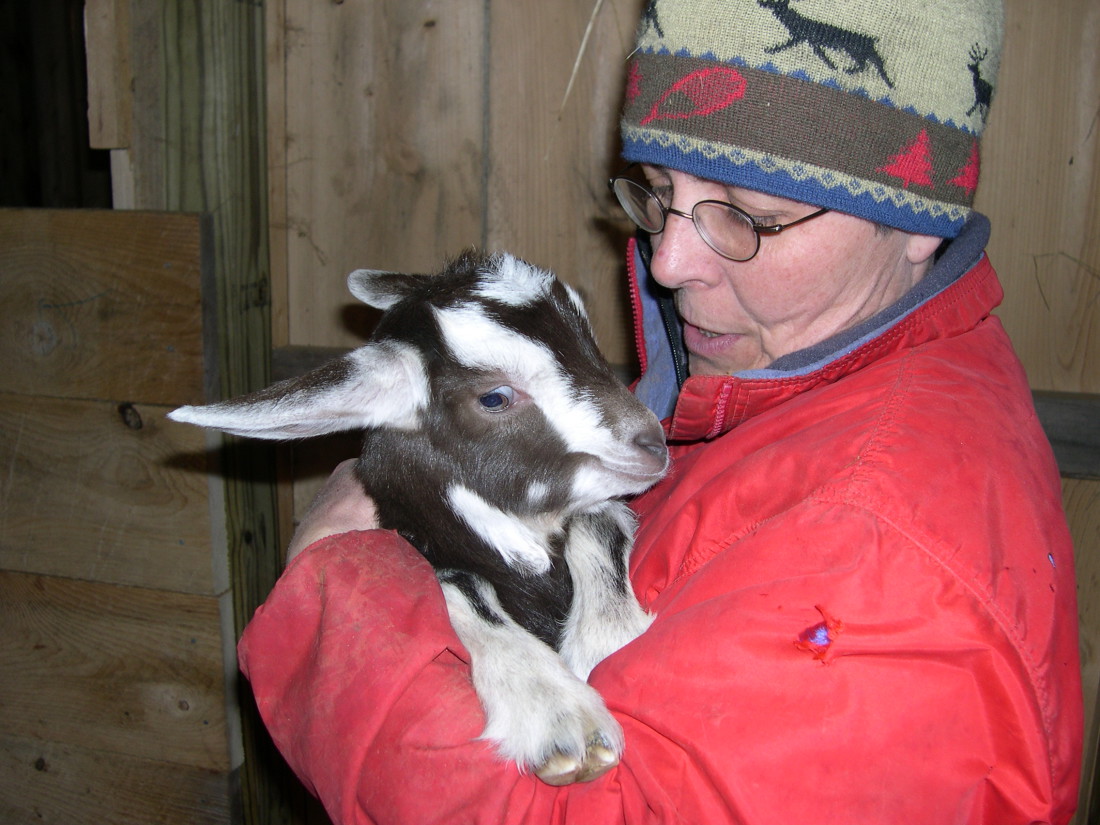In 1994, Carol Coulter and her husband moved to Ashe County to renovate an old homestead. “The whole place was overgrown with multi-flora rose,” Coulter says. “We spent days trying to clear it out, then realized that was crazy. A neighbor said, ‘Get goats, they eat it.’”
This practical advice sparked an interest in farming that, two decades later, has developed into a booming business that includes dairy goats, pigs and a firebrick oven.
But success came with a long learning period. “If you’re not from a farming background, the learning curve is steep,” Coulter says. She also discovered that other women were having similar troubles.
“We had a hard time getting information,” Coulter says. “Guys didn’t want to take us seriously. We were angry women who couldn’t get what we wanted educationally — and forget trying to go to a bank for money. A woman farmer? It was kind of unheard of around here.”
In 2000, that group of women, including Coulter, began to meet informally to share information. Interest in the meetings grew, attracting women from throughout Western North Carolina. The group formalized as Blue Ridge Women in Agriculture and began organizing regional conferences to share knowledge with others. “We listened to what farmers wanted and helped them make connections, whether it be education or finding new markets,” Coulter explains.
Today BRWIA members cover nine counties in WNC, with Coulter serving as executive director since July 2014. Coulter notes the impact the group has had on women’s role in farming in the region, pointing to large- scale operations run by women. BRWIA offers several grants to male and female farmers, organizes workshops, facilitates apprenticeships and hosts a public farm tour.
Coulter says she sees small-scale operations as viable alternatives to factory farming, and believes the public is beginning to notice too. “I think there’s suspicion about what’s in the grocery store now,” she says.
While there are plenty of challenges facing small-scale farmers, Coulter says BRWIA can look back to its origins and see that a lot of ground’s been covered. “We’re slowly getting a leg up,” she adds. “None of us are in it for money. We’re driven by good food, community, quality of life and care for the land.”




Before you comment
The comments section is here to provide a platform for civil dialogue on the issues we face together as a local community. Xpress is committed to offering this platform for all voices, but when the tone of the discussion gets nasty or strays off topic, we believe many people choose not to participate. Xpress editors are determined to moderate comments to ensure a constructive interchange is maintained. All comments judged not to be in keeping with the spirit of civil discourse will be removed and repeat violators will be banned. See here for our terms of service. Thank you for being part of this effort to promote respectful discussion.